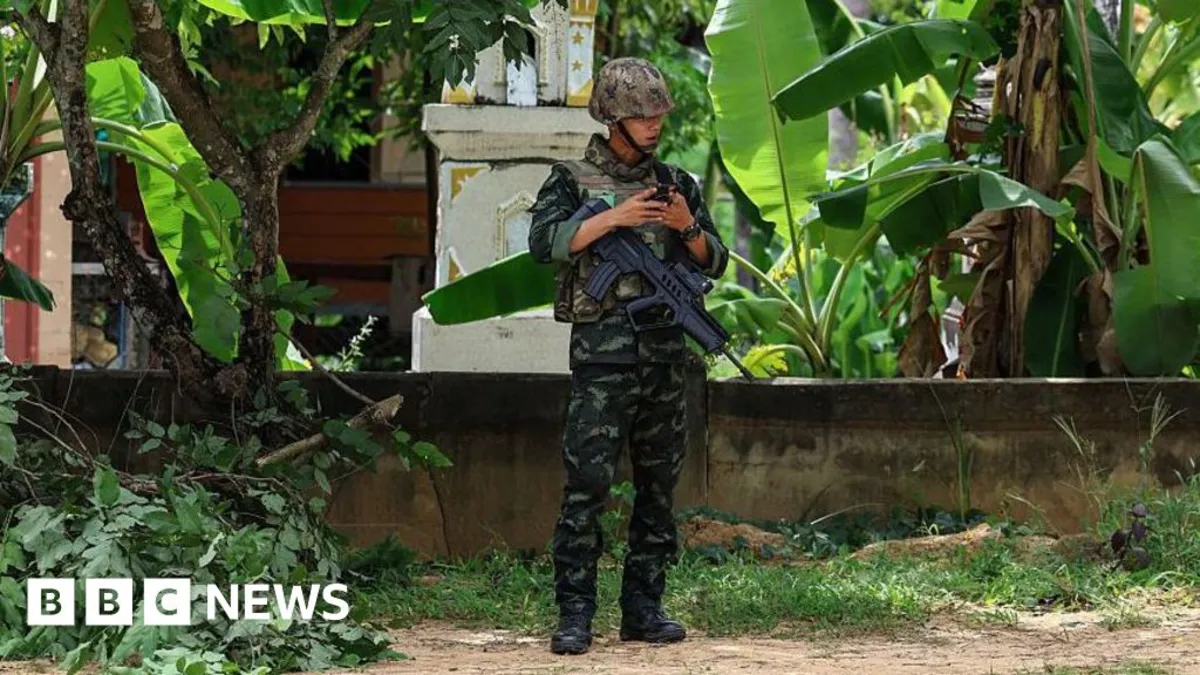
Cambodia has urgently requested an immediate ceasefire with Thailand, following two days of intense cross-border fighting between the two Southeast Asian nations. In a statement made by Cambodia's ambassador to the United Nations, Chhea Keo, it was emphasized that the request for a truce comes unconditionally, highlighting Phnom Penh's desire for a peaceful resolution to the ongoing dispute.
As of now, Thailand has not publicly addressed the ceasefire proposal. The Thai government had previously declared martial law across eight districts that border Cambodia, signaling the seriousness of the situation. Reports indicate that the conflict has resulted in at least 16 fatalities and displaced tens of thousands of individuals from both countries, with each side accusing the other of initiating hostilities.
On Friday, Thailand’s acting Prime Minister, Phumtham Wechayachai, issued a stark warning regarding the potential escalation of the clashes into a full-blown war. He noted that the conflict has escalated to include heavy weaponry and has spread across 12 locations along the border. In response to the violence, Thailand has accused Cambodia of targeting civilian areas, leading to the evacuation of all villages within the range of potential rocket strikes.
In a reciprocal accusation, Cambodia has claimed that Thailand employed cluster munitions during the clashes. These weapons are widely banned in many parts of the world due to their indiscriminate impact on civilian populations. However, Thailand has yet to respond to these serious allegations, which further complicates the already tense situation.
Amidst the rising conflict, Thailand's foreign minister conveyed to the Reuters news agency that there was no need for third-party mediation, even as global leaders, including those from the United States, have called for an immediate cessation of hostilities. They stress the importance of protecting civilians and seeking a peaceful resolution to the conflict.
Malaysian Prime Minister Anwar Ibrahim, who is currently chairing the Association of Southeast Asian Nations (ASEAN), has offered to facilitate dialogue between the two nations in an effort to de-escalate tensions. His proactive approach highlights the regional concern over the conflict and the potential for broader instability in Southeast Asia.
The current strife between Cambodia and Thailand is rooted in a complex history that dates back over a century, primarily stemming from the territorial boundaries established during the French colonial occupation of Cambodia. Over the years, the two countries have experienced sporadic clashes, resulting in casualties among both soldiers and civilians. The latest tensions intensified in May when a Cambodian soldier was killed, marking a significant deterioration in bilateral relations, which are now at their lowest point in over a decade.
The situation remains fluid as both nations grapple with the ongoing hostilities and the pressing need for a diplomatic resolution. The international community continues to advocate for peace, urging both Cambodia and Thailand to prioritize dialogue over conflict.